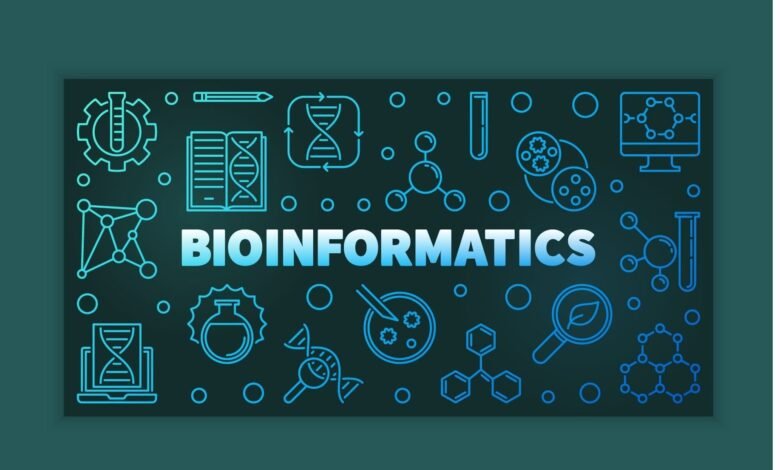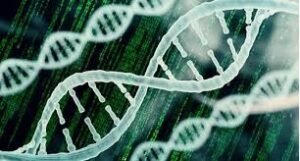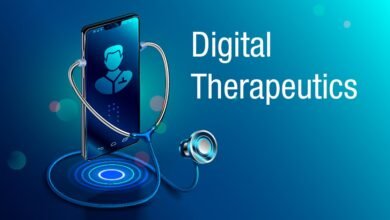How to Leverage Bioinformatics for Biomedical Research in 2023

Biomedical research has entered a new era of data-driven discovery, thanks to the remarkable field of bioinformatics. In this article, we will explore how to leverage bioinformatics to its full potential for advancing biomedical research.
Understanding Bioinformatics

Bioinformatics is the interdisciplinary field that combines biology, computer science, and mathematics to analyze and interpret biological data. It involves the development of software tools and databases to store, manage, and analyze vast amounts of biological information.
Importance of Bioinformatics in Biomedical Research
Bioinformatics plays a pivotal role in biomedical research by facilitating the extraction of valuable insights from biological data. It helps researchers understand complex biological processes, identify potential drug targets, and unravel the genetic basis of diseases.
Data Collection and Storage
One of the fundamental aspects of bioinformatics is the efficient collection and storage of biological data. This includes data from genomics, proteomics, and metabolomics experiments. High-throughput technologies generate massive datasets, and bioinformatics tools ensure their accessibility and organization.
Data Analysis Techniques
Bioinformatics employs a range of data analysis techniques, including statistical analysis, machine learning, and data mining, to uncover meaningful patterns in biological data. These techniques are essential for identifying biomarkers, studying gene expression, and predicting disease outcomes.
Genomic Sequencing and Bioinformatics
Genomic sequencing, the process of determining an organism’s complete DNA sequence, relies heavily on bioinformatics tools for data assembly and interpretation. This has revolutionized our understanding of genetics and genomics.
Drug Discovery and Bioinformatics
Bioinformatics accelerates drug discovery by enabling the screening of large chemical compound libraries to identify potential drug candidates. It also aids in understanding drug interactions, side effects, and mechanisms of action.
Disease Diagnosis and Bioinformatics
In the realm of diagnostics, bioinformatics assists in the identification of genetic mutations associated with diseases. This helps in early diagnosis, prognosis, and personalized treatment plans.
Personalized Medicine
Bioinformatics plays a key role in the emerging field of personalized medicine. By analyzing an individual’s genetic makeup, medical professionals can tailor treatments to their specific genetic profile, increasing the effectiveness of therapies.
Challenges in Bioinformatics
Despite its immense potential, bioinformatics faces challenges such as data privacy concerns, the need for sophisticated computational infrastructure, and the constant evolution of biological technologies.
Future Trends in Bioinformatics
The future of bioinformatics promises exciting developments, including the integration of multi-omics data, advancements in artificial intelligence for data analysis, and the expansion of precision medicine.
Ethical Considerations
As bioinformatics continues to grow, it is crucial to address ethical concerns related to data privacy, consent, and the responsible use of genetic information.
Future of Leverage Bioinformatics for Biomedical Research

In recent years, the field of biomedical research has undergone a remarkable transformation, thanks to the integration of bioinformatics. This powerful discipline, which combines biology with computer science, has paved the way for groundbreaking discoveries and advancements in healthcare. As we step into 2023, it’s evident that the future of leveraging bioinformatics for biomedical research is brighter than ever. In this article, we will explore the exciting developments and possibilities that await us in this dynamic field.
The Evolution of Bioinformatics
A Brief History
Bioinformatics has come a long way since its inception. It emerged in the late 20th century as researchers recognized the need to manage and analyze the vast amounts of data generated by genomic sequencing projects. Initially, it focused on basic sequence alignment and gene prediction. However, it has rapidly evolved to encompass a wide range of applications.
Integration with Big Data
One of the most significant developments in recent years has been the integration of bioinformatics with big data technologies. With the advent of high-throughput sequencing techniques, researchers now have access to terabytes of genomic data. Bioinformatics tools and algorithms are essential for making sense of this immense dataset.
Artificial Intelligence in Bioinformatics
Artificial intelligence (AI) has also found its place in bioinformatics. Machine learning algorithms can identify patterns and anomalies in biological data, aiding in disease diagnosis, drug discovery, and personalized medicine.
The Impact on Biomedical Research
Accelerating Drug Discovery
Bioinformatics has revolutionized the drug discovery process. By analyzing genetic and proteomic data, researchers can identify potential drug targets and predict the efficacy of new compounds. This has significantly shortened the time required to bring new medications to market.
Personalized Medicine
In 2023, personalized medicine is no longer a distant dream. Bioinformatics allows healthcare providers to tailor treatments to an individual’s genetic makeup, increasing the chances of successful outcomes and reducing side effects.
Disease Genomics
The study of disease genomics has advanced significantly. Researchers can now pinpoint the genetic mutations responsible for various diseases, leading to a better understanding of their causes and potential treatments.
Challenges and Ethical Considerations
Data Security and Privacy
With the vast amount of sensitive genetic data being generated, data security and privacy have become paramount concerns. In 2023, there is an increasing need for robust safeguards to protect individuals’ genetic information.
Ethical Use of Genetic Data
As bioinformatics becomes more powerful, ethical questions arise about the use of genetic data. Striking a balance between scientific progress and respecting individual rights is an ongoing challenge.
The Road Ahead
Integration with Healthcare
The integration of bioinformatics into healthcare systems will continue to grow. Electronic health records will include genomic data, enabling more precise diagnoses and treatments.
Collaboration and Interdisciplinarity

Collaboration between biologists, computer scientists, and healthcare professionals will become even more crucial. Interdisciplinary teams will drive innovation and tackle complex healthcare challenges.
Conclusion
In conclusion, bioinformatics is a powerful tool that has transformed the landscape of biomedical research. Its contributions to genomics, drug discovery, disease diagnosis, and personalized medicine are undeniable. As we navigate the ethical and technical challenges, bioinformatics will remain at the forefront of scientific innovation.
Read more : How to Implement Cloud Robotics for Global Collaboration in 2023
FAQs(Biomedical Research)
What is the role of bioinformatics in genomics?
Bioinformatics helps analyze and interpret genomic data, allowing researchers to study genes, genetic variations, and their functions.
How does bioinformatics contribute to drug discovery?
Bioinformatics aids in virtual screening of compounds, predicting drug-target interactions, and understanding drug mechanisms, expediting drug discovery.
Can bioinformatics help in diagnosing rare diseases?
Yes, bioinformatics can identify genetic mutations associated with rare diseases, enabling early and accurate diagnosis.
What are the key challenges in bioinformatics research?
Challenges include data privacy, computational resources, and staying updated with rapidly evolving technologies.
How can I pursue a career in bioinformatics?
You can start by obtaining a degree in bioinformatics, biology, or a related field and gaining experience through internships or research projects. Networking and continuous learning are also essential for a successful career in bioinformatics.
Read more : How to Implement Cloud Robotics for Global Collaboration in 2023








2 Comments